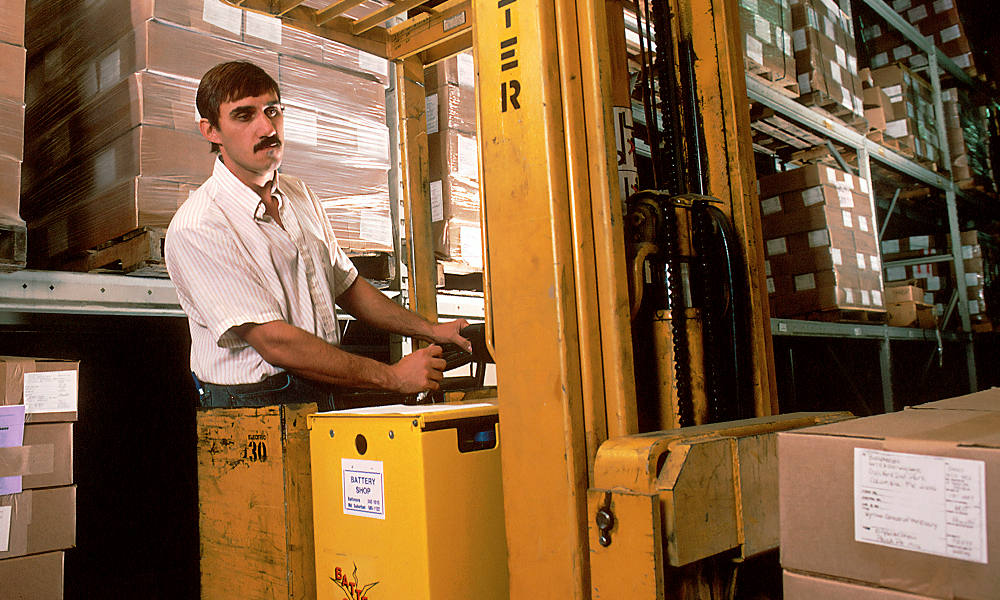Reviews
Reducing Operational Costs With Next-Generation Automated Storage Solutions

In today’s competitive marketplace, businesses are constantly seeking ways to reduce operational costs while enhancing efficiency. One area that offers significant potential for cost savings is warehousing and storage. Traditional storage methods are often labor-intensive and prone to errors, leading to increased expenses.
Enter next-generation automated storage solutions — innovative technologies that are transforming the way companies manage their inventory and streamline operations.
The rising costs of traditional warehousing
Traditional warehousing relies heavily on manual processes. Employees are tasked with locating, retrieving, and handling products, which can be time-consuming and error-prone. Labor costs constitute a significant portion of operational expenses, and human errors can lead to misplaced items, incorrect shipments, and customer dissatisfaction. Additionally, inefficient use of warehouse space can result in higher real estate costs as businesses expand their storage facilities to accommodate growing inventories.
What are next-generation automated storage solutions?
Next-generation automated storage solutions encompass a range of technologies designed to automate the storage and retrieval of goods within a warehouse. These systems leverage advanced robotics, artificial intelligence (AI), and sophisticated software to optimize inventory management.
Examples include Automated Storage and Retrieval Systems (AS/RS), robotic shuttles, and AI-driven sorting systems. These technologies work together to move products within the warehouse with minimal human intervention, increasing speed and accuracy.
Benefits of automated storage solutions
Automated systems can operate 24/7 without the need for breaks, significantly increasing throughput. They can process orders faster than manual methods, ensuring that products are picked, packed, and shipped promptly. This efficiency not only reduces labor costs but also improves customer satisfaction by decreasing delivery times.
Reduced labor costs
By automating repetitive and labor-intensive tasks, businesses can reduce their reliance on manual labor. This not only cuts down on wages and overtime expenses but also minimizes the risk of workplace injuries associated with manual handling. Employees can be redeployed to more strategic roles that add value to the business.
Enhanced space utilization
Automated storage solutions are designed to maximize warehouse space. Vertical lift modules and high-density storage systems make better use of vertical space, reducing the need for expansive floor areas. This optimization can delay or eliminate the need for costly warehouse expansions.
Increased accuracy and reduced errors
Automation minimizes human error in inventory management. Advanced systems accurately track inventory levels in real time, reducing discrepancies between actual stock and recorded data. This accuracy leads to fewer shipping errors, returns, and customer complaints.
Energy savings
Modern automated systems are energy-efficient, often utilizing regenerative braking and other technologies to reduce power consumption. Over time, these energy savings contribute to lower operational costs and support sustainability initiatives.
Integration with Warehouse Management Systems
The effectiveness of automated storage solutions is amplified when integrated with a robust Warehouse Management System (WMS). A WMS coordinates all aspects of warehouse operations, from inventory tracking to order fulfillment.
When combined with automation, a WMS provides real-time data analytics, predictive maintenance alerts, and optimized workflow management. This synergy ensures that the warehouse operates at peak efficiency, further driving down operational costs.
Real-world applications
Several industry leaders have successfully implemented automated storage solutions. For instance, e-commerce giants use robotic systems to handle high volumes of orders daily. These systems have enabled them to scale operations without a corresponding increase in labor costs.
Similarly, manufacturers have adopted automation to manage complex supply chains, ensuring that components are available just in time for production lines, thereby reducing inventory holding costs.
Future trends in automated storage
The evolution of automated storage solutions is ongoing. Emerging technologies like the Internet of Things (IoT), machine learning, and advanced robotics are poised to further revolutionize warehouse operations. Predictive analytics will enable warehouses to anticipate demand patterns, while autonomous vehicles may soon handle material transport within and between facilities.
Final thoughts
Reducing operational costs is a critical objective for businesses aiming to remain competitive. Next-generation automated storage solutions offer a tangible means to achieve this goal by enhancing efficiency, reducing labor and energy costs, and improving space utilization.
When integrated with advanced systems like a Warehouse Management System (WMS), these technologies provide a powerful tool for transforming warehouse operations. Embracing automation is not just a trend but a strategic move that can deliver significant long-term savings and operational advantages.
Businesses that invest in these technologies today will be better positioned to meet the challenges of tomorrow’s marketplace. As automation continues to advance, the potential for cost reduction and efficiency gains will only grow, making now the ideal time to explore next-generation automated storage solutions.

-

 Legal6 days ago
Legal6 days agoMichigan man JD Vance sentenced to 2 years for threatening Trump and JD Vance
-

 Politics1 week ago
Politics1 week agoU.S. to designate Maduro-linked Cartel de los Soles as terrorist organization
-

 Health7 days ago
Health7 days agoCambodia reports fatal H5N1 bird flu case in 22-year-old man
-

 World4 days ago
World4 days agoHurricane Melissa registered 252 mph wind gust, breaking global record
-

 Legal4 days ago
Legal4 days agoWoman in critical condition after being set on fire on Chicago train
-

 Politics7 days ago
Politics7 days agoEpstein survivors release PSA calling on Congress to release all files
-

 Legal4 days ago
Legal4 days ago1 dead, 2 injured in shooting at Dallas Walmart parking lot
-

 Legal3 days ago
Legal3 days agoSuspect in San Diego stabbing shot by authorities after fleeing into Mexico




